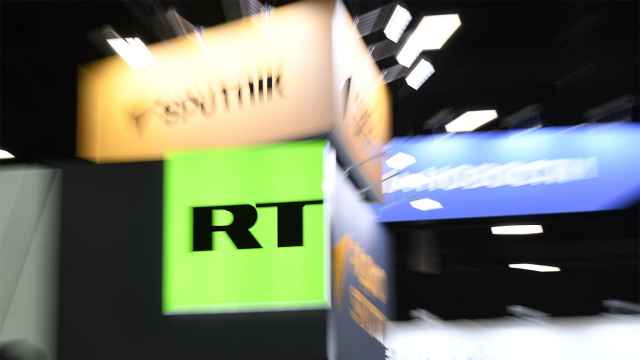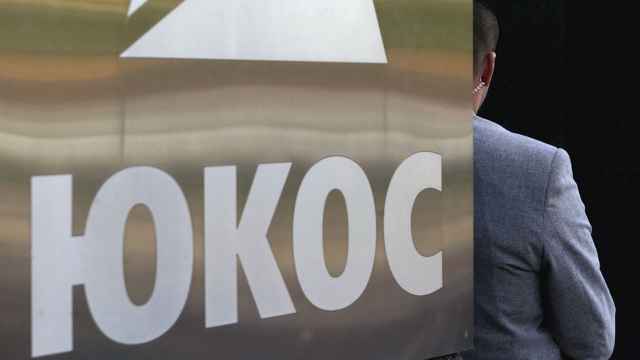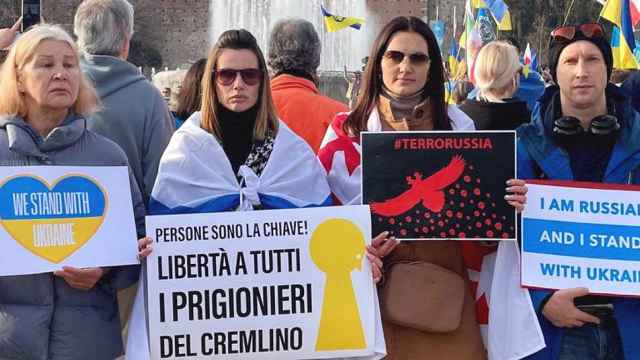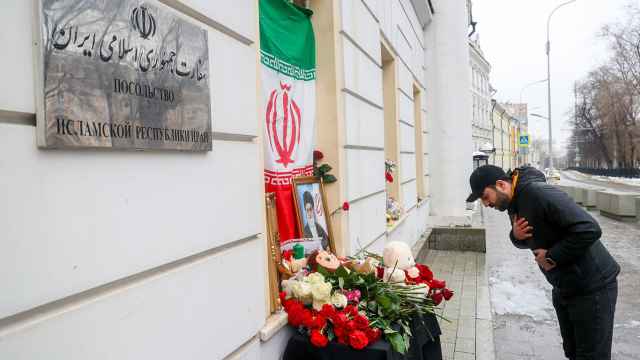Since Vladimir Putin's return to the presidency in May, civil society has been the target of a government crackdown whose scale and severity is unprecedented in post-Soviet Russia, two leading international human rights organizations said Wednesday.
Restrictive new laws, invasive checks on hundreds of nongovernmental groups, propaganda that demonizes certain NGOs, harassment and criminal prosecutions threaten the viability of civil society, representatives from Human Rights Watch and Amnesty International told journalists in Moscow.
"[The current situation is] like a foot resting on the throat of critical and divergent voices. That foot has not been pushed all the way down, and it may not be. But it can be pushed down, and that is enough," said John Dalhuisen, Europe and Central Asia program director at Amnesty International.
Not only do NGOs feel the threatening "boot on the larynx," as Dalhuisen put it, but they have also been enmeshed in onerous requests from government inspectors, who began appearing at the offices of groups in dozens of regions in early March, said Oleg Orlov of the Memorial human rights center.
Memorial Moscow had to hand over copies of 8,766 documents for its five separate legal entities. "Imagine how many people we had working on this. It really distracted us from our work," Orlov said, adding that in 2006-07, when a similar clampdown took place, were "salad days" by comparison.
Most groups were asked for a standard set of registration, tax and financial documents. Other checks were more intrusive and demanding. An anti-discrimination center in St. Petersburg was asked to prove that its staff had been vaccinated for smallpox, while a group that carries out educational and peace building programs in the North Caucasus was ordered to present lung X-rays of its staff members.
Memorial is one of many NGOs that have come under pressure to label themselves a "foreign agent" under a July law that requires groups that receive foreign funding and engage in "political activities" to adopt the title, widely understood to mean "spy" and "traitor," or face stiff fines or jail terms.
The government, which accused human rights and pro-democracy groups of being foreign-controlled tools for whipping-up discontent and destabilizing the government, has said the law is designed to bring transparency to a massive, shady capital flow, not to hinder NGOs' operations.
Earlier this month, Putin told German radio that Russian NGOs received more than 28.3 billion rubles ($900 million) in foreign funding in the past four months, a figure civil society leaders dismissed as a gross exaggeration. The Kremlin has not explained how it arrived at that number.
Tanya Lokshina of Human Rights Watch said transparency was a red herring. "What's happening today has nothing to do with banal regulation. Civil society is suffocating," she said at the news conference, where her group and Amnesty International released separate reports on the crackdown.
Vote monitor Golos, whose documentation of fraud during December 2011 State Duma elections helped spark massive street protests that rattled the Kremlin, is scheduled on Thursday to become the first high-profile NGO to be brought to court for failing to register as a "foreign agent." Memorial and other groups have boycotted the law and asked the European Court of Human Rights to rule on its legality.
Human Rights Watch and Amnesty International also expressed alarm about an October law that broadens the definition of treason to include aiding foreign organizations deemed harmful to Russia's security, and another law that bans "political" NGOs from receiving U.S. funding.
Contact the author at [email protected]
Related articles:
A Message from The Moscow Times:
Dear readers,
We are facing unprecedented challenges. Russia's Prosecutor General's Office has designated The Moscow Times as an "undesirable" organization, criminalizing our work and putting our staff at risk of prosecution. This follows our earlier unjust labeling as a "foreign agent."
These actions are direct attempts to silence independent journalism in Russia. The authorities claim our work "discredits the decisions of the Russian leadership." We see things differently: we strive to provide accurate, unbiased reporting on Russia.
We, the journalists of The Moscow Times, refuse to be silenced. But to continue our work, we need your help.
Your support, no matter how small, makes a world of difference. If you can, please support us monthly starting from just $2. It's quick to set up, and every contribution makes a significant impact.
By supporting The Moscow Times, you're defending open, independent journalism in the face of repression. Thank you for standing with us.
Remind me later.





